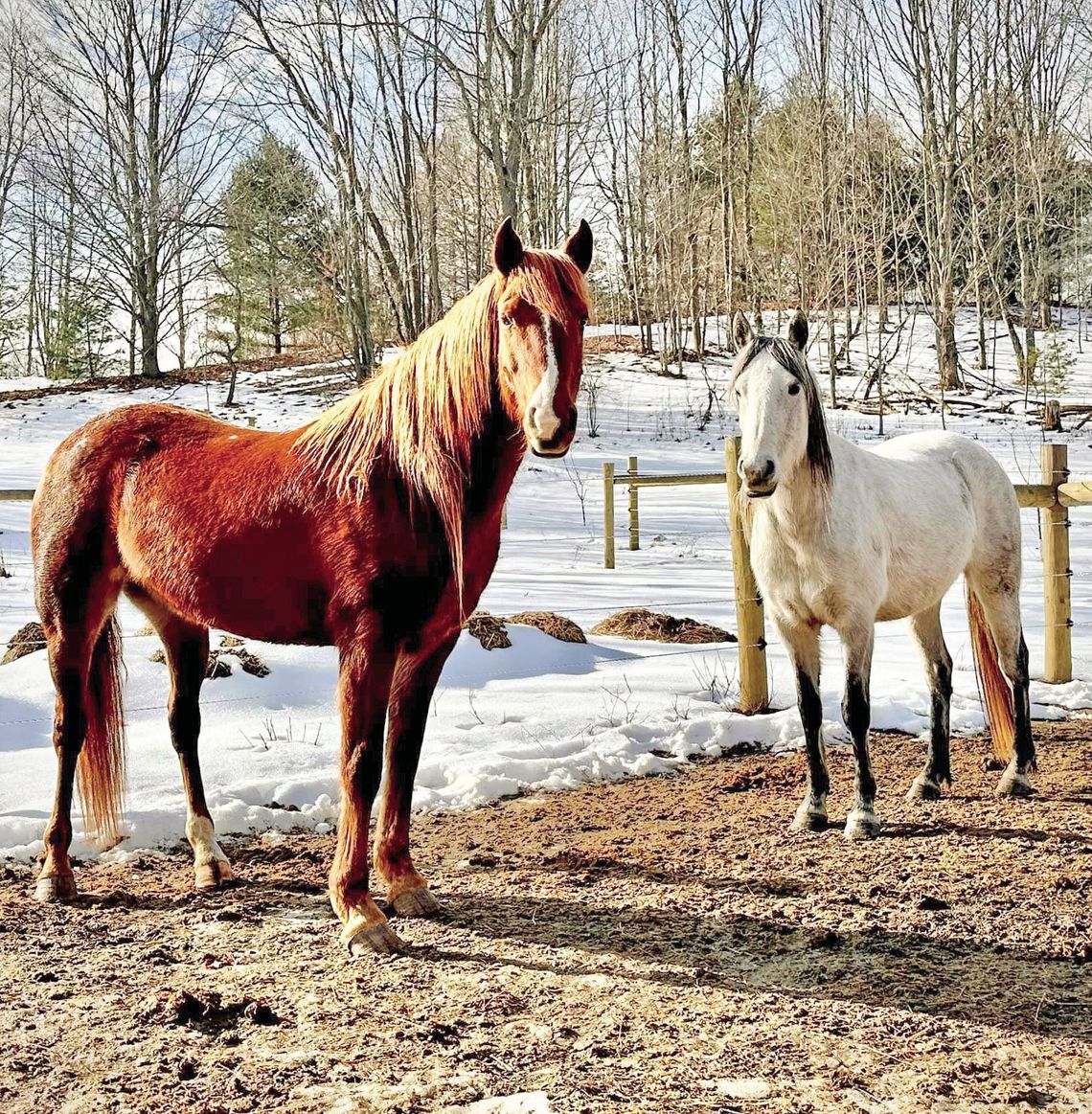Horse North Rescue (HNR), a nonprofit organization that seeks to “rescue, rehab, and rehome” horses from northern Michigan and the Upper Peninsula, recently acquired a 10-acre parcel west of Interlochen through generous donations to their fundraiser.
Moving to a larger property near Interlochen allowed the organization to triple the number of horse rescues they can take in, said Barbara Birdsong of Suttons Bay, a HNR board member. The organization was founded in 2006 and had previously been operating out of Lake Ann, thanks to the generosity of a property owner.
“At our previous site, we could only have six horses,” Birdsong said. “After moving to our own land near Interlochen, we went from six horses to 17 in two months. In the last six to seven months, we adopted some of those out and took others in.”



